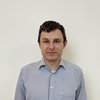Satellite Technology For Assessing Global Terrestrial Carbon Stock – State Of The Art & Future
Webinar
Never miss a recording again; click here subscribe to Z/Yen's YouTube account .
Background: Terrestrial carbon is stored into above-ground biomass, roots, and soil. Anthropogenic climate change, related policies and carbon trading schemes make its accurate assessment increasingly important. Whereas in situ, airborne and drone-based methods are generally more accurate – spaceborne means possess a list of advantages, which are hard to beat. With satellite-based methods it is possible to gather data in short time about huge areas with uniform quality. Independent third-party validation is also easier as satellite data is to a large extent freely available with open data policy. The accuracy of satellite-based carbon stock assessment has improved with current best methods having twenty five to thirty percent uncertainties. A brief overview of satellite-based terrestrial carbon stock estimation techniques and data sources will be given. Covering indirect proxy methods via passive optical satellite reflectance and radar backscatter and direct biomass volume-measurement methods using interferometric radar and LiDAR data. Direct accurate top layer soil carbon measurement over bare land is also increasingly possible thanks to the advancements of hyperspectral imaging satellites.
KappaZeta is developing a constellation of three passive receiver satellites making current industry standard Sentinel-1 radar data from planar to 3-dimensional. It would address many of the shortcomings of current global carbon stock estimation means by cleverly augmenting one of most powerful satellite radar data factories of 2010s to 2030ies. Via direct measurements of the above-ground biomass volume it is possible to improve the carbon stock estimation accuracy of present day’s 25% uncertainty to 10% uncertainty. A global, comparable, accurate and affordable data set for carbon stock estimation will be created. With New Space technology about €20 million investment is needed (with safer and slower old-space means about €80 million investment). We are looking for private and governmental stakeholders to develop the user requirements and relations.
Speaker:
Kaupo Voormansik, PhD is the CEO and co-founder of KappaZeta an Earth Observation services company. Kaupo has background in radar remote sensing and small satellites engineering. He built up a systematic understanding of synthetic aperture radar in 2011-2012 as well as trainee in German Aerospace Center DLR and is the co-author of 20+ research papers with 856 citations (Google Scholar). He was the systems engineer of the first Estonian satellite ESTCube-1, successfully launched and operated 2013-2015. Kaupo was Estonian national delegate in European Space Agency Earth observation programme board 2015-2016.
Date
Wednesday, 27 September 2023
Time
11:00 - 11:45 BST
Cost
Free
Share this event on social media:
Speaker(s):
-
 Kaupo Voormansik
Kaupo Voormansik
CEO & Co-Founder
KappaZeta
Chairman:
-
 Simon Mills
Simon Mills
Senior Associate
Z/Yen Group
